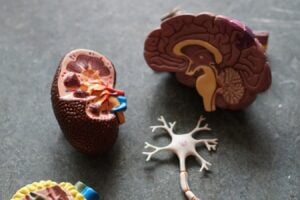NIA-funded research suggests that existing treatments for vision problems — including eye exams, glasses prescriptions, and cataract surgery — could have potentially prevented about 100,000 cases of dementia in the United States.
The study investigators used data from the University of Michigan Health and Retirement Study (HRS), a longitudinal study tracking changes in health and economic circumstances for more than 20,000 older adult volunteers.
Researchers noted that about 1.8% of U.S. dementia cases were associated with visual impairment, and projected that, by 2050, that total would rise to around 250,000 cases.
The study also showed that incidence of vision impairment in older adults was higher for Hispanics, at 11%, compared to 8.3% on average overall for Blacks and non-Hispanic Whites.
The researchers found that existing vision correction technologies and treatments, including eyeglasses and cataract surgery, are underutilized in the United States and globally, especially among disadvantaged communities.
Additional research is needed to determine if addressing correctable vision problems may be an effective intervention to protect cognitive health.
SOURCE:
REFERENCE:
Ehrlich JR, et al. Addition of vision impairment to a life-course model of potentially modifiable dementia risk factors in the US. JAMA Neurology. 2022;79(6):623-626. doi:10.1001/jamaneurol.2022.0723.











